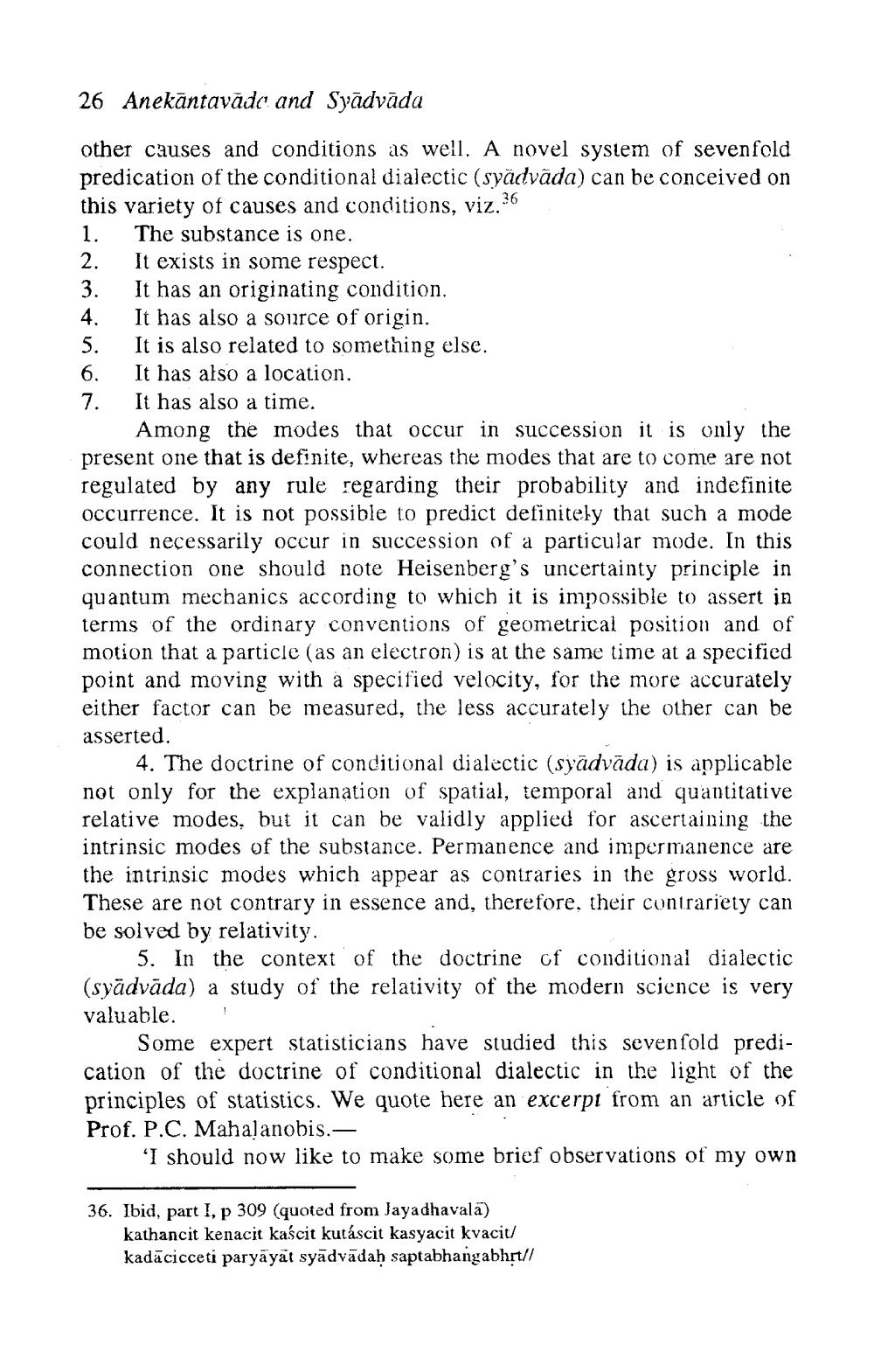________________
26 Anekāntavāde and Syādvāda
other causes and conditions as well. A novel system of sevenfold predication of the conditional dialectic (syadvada) can be conceived on this variety of causes and conditions, viz. 1. The substance is one. 2. It exists in some respect.
It has an originating condition.
It has also a source of origin. 5. It is also related to something else. 6. It has also a location. 7. It has also a time.
Among the modes that occur in succession it is only the present one that is definite, whereas the modes that are to come are not regulated by any rule regarding their probability and indefinite occurrence. It is not possible to predict definitely that such a mode could necessarily occur in succession of a particular mode. In this connection one should note Heisenberg's uncertainty principle in quantum mechanics according to which it is impossible to assert in terms of the ordinary conventions of geometrical position and of motion that a particle (as an electron) is at the same time at a specified point and moving with a specified velocity, for the more accurately either factor can be measured, the less accurately the other can be asserted.
4. The doctrine of conditional dialectic (syadvāda) is applicable not only for the explanation of spatial, temporal and quantitative relative modes, but it can be validly applied for ascertaining the intrinsic modes of the substance. Permanence and impermanence are the intrinsic modes which appear as contraries in the gross world.
are not contrary in essence and, therefore, their contrariety can be solved by relativity.
5. In the context of the doctrine of conditional dialectic (syädvāda) a study of the relativity of the modern science is very valuable. !
Some expert statisticians have studied this sevenfold predication of the doctrine of conditional dialectic in the light of the principles of statistics. We quote here an excerpt from an article of Prof. P.C. Mahalanobis.
'I should now like to make some brief observations of my own
36. Ibid, part I, p 309 (quoted from Jayadhavala)
kathancit kenacit kaścit kutáscit kasyacit kvacit/ kadācicceti paryāyāt syadvādah saptabhangabhr//




